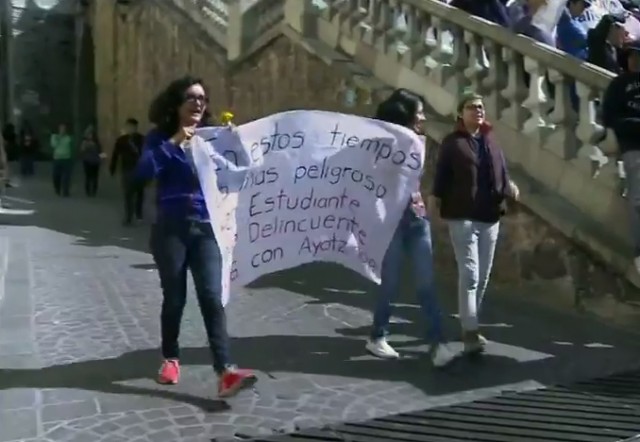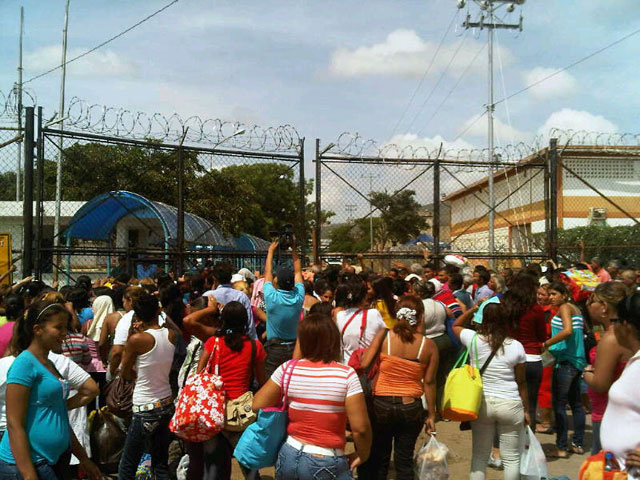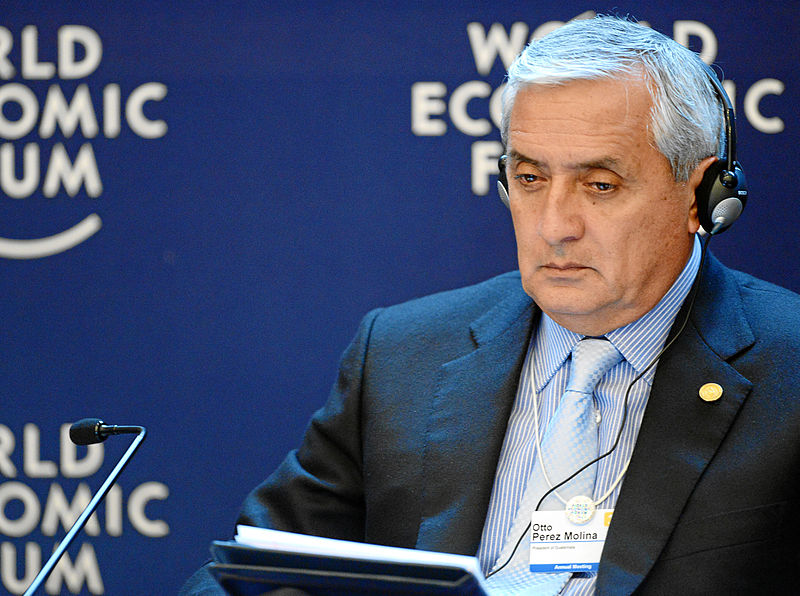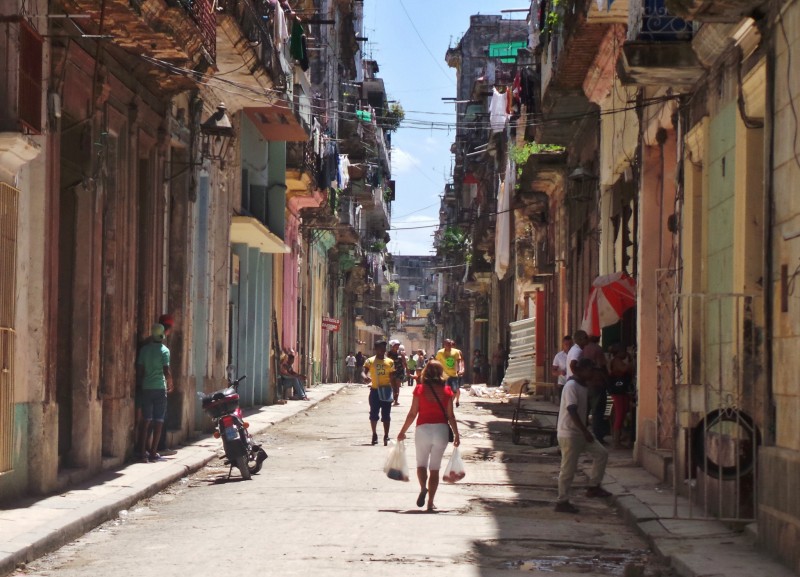
Latin America: Week in Review, Mexico, North America
Governor of Mexican State Steps Down Over Student Disappearances
October 24, 2014 By Staff
Top Story — The governor of the Mexican state of Guerrero stepped down from his position on Thursday as the disappearance of 43 students there late last month continues to reverberate across the country.
Ángel Aguirre, 58, is barred by law from resigning his post, but said that he is taking a leave of absence. Aguirre has faced widespread anger over his handling of the students’ disappearance, and many have called for his resignation during protests in Guerrero’s capital city Chilpancingo.
On Wednesday tens of thousands protested in Mexico City, observing a “Global Day of Action for Ayotzinapa,” in reference to the teacher training school the missing students attended. A two-day strike is underway at some 50 schools in Mexico in protest of the disappearances. Similar actions have reportedly been planned in cities across the world.
Aguirre announced his leave of absence as hundreds of students marched on Thursday in the eponymous capital city of Guanajuato state in central Mexico, demanding answers after a schoolmate of theirs died in police custody in a separate incident.
The student, Ricardo de Jesus Esparza Villegas, was found dead after being arrested in Guanajuato during Cervantina, a popular arts and culture festival. Police claim he fell off a roof after allegedly trying to break into a home, but student protesters said the police killed him.
Esparza’s death is the latest in a string of recent episodes to spark discontent with the security forces in Mexico. The head of the country’s human rights commission on Tuesday said military troops executed up to 15 suspected criminals after they surrendered following a brief shootout in June.
Authorities suspect that police officers colluded with local gang members in the city of Iguala to abduct the 43 missing students on the night of Sept. 26, under the orders of the mayor and his wife, who are both on the run.
Headlines from the Western Hemisphere
North America
- The editor of Mexican publication Nueva Prensa, Jesus Antonio Gamboa, who went missing on Oct. 10, was found dead after his suspected murderers led the police to his body.
- More than 300 people died crossing the Mexico-U.S. border in the 2014 fiscal year, the lowest the figure has been in 15 years as migrants have been turning themselves in to border officials instead of making the dangerous journey through the Arizona desert.
Caribbean
- An attorney representing Haitians seeking compensation from the U.N. for its alleged role in Haiti’s 2010 cholera outbreak asked a skeptical U.S. judge to waive the U.N.’s diplomatic immunity in the case, which the U.S. lawyer representing the U.N. said would set a precedent that could jeopardize the organization’s mission around the world.
- The rapid spread of the chikungunya virus in the Caribbean has contributed to increased paranoia regarding the spread of the Ebola virus in the region, a fear that may be partially unfounded considering chikungunya is mosquito borne and much harder to prevent the spread of.
- The use of medical marijuana and potential decriminalization of the drug may not be as favorable as would seem in the Caribbean, and could jeopardize the livelihoods of local dealers.
Central America
- An attorney representing Haitians seeking compensation from the U.N. for its alleged role in Haiti’s 2010 cholera outbreak asked a skeptical U.S. judge to waive the U.N.’s diplomatic immunity in the case, which the U.S. lawyer representing the U.N. said would set a precedent that could jeopardize the organization’s mission around the world.
- The rapid spread of the chikungunya virus in the Caribbean has contributed to fear over the spread of the Ebola virus in the region, a concern which may be partially unfounded as chikungunya is mosquito-borne and much harder to prevent.
- The use of medical marijuana and potential decriminalization of the drug may not be as favorable as would seem in the Caribbean, and could jeopardize the livelihoods of local dealers.
Andes
- A group of archaeologists working high in the Peruvian Andes discovered stone tools and other artifacts which point to theexistence of a civilization at 14,700 feet above sea level over 12,000 years ago, nearly 1,000 years earlier than any other known civilization at such a high elevation.
- A Colombian police general said on Thursday that the authorities will step up their efforts against contraband smuggling, a $6 billion a year industry that has been long neglected in favor of fighting drug traffickers and Marxist guerrillas.battle against contraband.
- Six more high-ranking FARC members, including the group’s third in command, arrived in Havana this week. Several other key leaders are expected to arrive in the near future.
- Several Venezuelan Twitter users have reportedly been detained over the past three weeks, after the country’s police claimed their tweets connected them to the murder of Robert Serra, the Socialist Party lawmaker who was killed on Oct. 1.
Southern Cone
- As São Paulo’s worst drought in eighty years continues, reservoirs have plummeted to 5 percent of their original capacity, bringing the metropolis dangerously close to running out of fresh water.
- A poll released on Thursday indicates that ahead of Sunday’s election, Brazilian President Dilma Rousseff has taken a six point lead over Aécio Neves, exceeding the margin of error for the first time since the first round of polling concluded earlier this month.
- An investigation by Chilean prosecutors has found that a man killed in a bomb blast in Santiago last month was not involved in planting the device, making him the first person to die in a terror bombing since democracy returned to the country in 1990.
Image: Youtube





